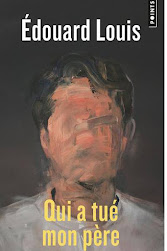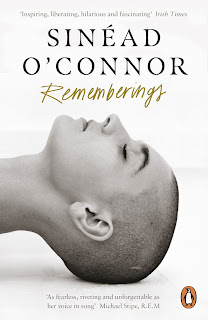Hendrik Vos is niet alleen een begenadigd wielrenner, maar ook een autoriteit over Europese politiek in Vlaanderen. Met "Dit is Europa", een klepper van meer dan 600 pagina's, schreef hij de ultieme historische roman over de totstandkoming van de EU. Ik weet het wel, de geschiedenis van de Europese Unie spreekt meestal niet direct tot de verbeelding, tenzij je kickt op lange uitleg over wetten, parlementen en hervormingen. Van buitenaf lijkt de geschiedenis van de EU voornamelijk te bestaan uit grijze ambtenaren in steriele vergaderzalen. Veel historische gebeurtenissen zijn nochtans het resultaat van gepassioneerde mensen wier kleurrijke leven doorspekt waren met saillante details.
Politicoloog Hendrik Vos weet met zijn eigen swingende stijl en humor deze gortdroge materie tot leven te brengen. Hij combineert zijn academische kennis met menselijke schetsen van de hoofdpersonen, hun vriendschappen (Helmut Kohl en François Mitterrand bijvoorbeeld) of vijandschappen (Margaret Thatcher en Jacques Delors), hun aarzelingen of juist hun vastberadenheid. Hij raadpleegde oude kranten, las biografieën en sprak met mensen die nauw betrokken waren bij deze onderhandelingen. De reconstructie van hoe de Europese integratie werkelijk tot stand kwam, is met andere woorden het resultaat van jarenlang onderzoek, toevallige vondsten en curieuze verhalen, ook over zijn eigen omzwervingen trouwens. Met een stijl die eerder die is van een romanschrijver dan die van een academicus, vliegen de voorbije zeventig jaar voorbij in een rotvaart.
Het boek is een reis over het continent in het kielzog van de hoofdrolspelers én van de willekeurige voorbijgangers die ongepland mee op het toneel belandden. Vos zoomt in op details en hangt daar het bredere verhaal aan op.
Het boek is een liefdevol geschreven ode aan compromissen. Europa verkeert immers altijd in een crisis: als het niet de asielcrisis of de eurocrisis is, dan is het wel de terreurcrisis, de oliecrisis of de landbouwcrisis. Het traject van de Europese eenwording was grillig en vol onverwachte wendingen. Er was nooit een draaiboek of een breed gedragen plan, en toch werd stap voor stap de Europese Unie geboren. Het boek is verrassend leesbaar, vaak erg grappig en vol anekdotes.
Zoals de anekdote over de Franse minister van Buitenlandse Zaken Robert Schuman, die zijn regering in 1950 overhaalde om voortaan Franse steenkool en staal samen met Duitsland (en nog vier andere landen) te beheren, door zijn plan op de ministerraad zo complex mogelijk te presenteren, mompelend, aarzelend, vol jargon en de belangrijke woorden half inslikkend. Schuman deed hard zijn best om het nogal betekenisloos te laten lijken. De andere regeringsleden keken op hun horloge en wilden gaan eten. Het plan werd door iedereen goedgekeurd. Zo kwam een onomkeerbaar proces op gang, dat Europa van de Europese Gemeenschap voor Kolen en Staal (EGKS) van destijds tot de EU van vandaag bracht. ‘Niemand had daar een flauw benul van, behalve Schuman zelf', schrijft Vos in zijn boek.
Het verhaal van de ondertekening van het Verdrag van Rome uit 1957, het oprichtingsverdrag van de Europese Economische Gemeenschap, is pure slapstick. Toen dat verdrag op het punt stond te worden ondertekend, moest al het papierwerk en een halve drukkerij naar Rome worden verplaatst. Maar toen de trein in Italië arriveerde, bleek de wagon met het verdrag er niet meer aan te hangen. In Zwitserland had de spoorwegpolitie die losgekoppeld, omdat het volgens de Zwitserse wetgeving niet kon dat een goederenwagon aan een trein met personenvervoer hing. Nadat die toch tot in Rome was geraakt, had het nog heel wat voeten in de aarde vooraleer het verdrag er lag. Zo presteerde een nietsvermoedende poetsploeg het om alle stencils die lagen te drogen, in de vuilnisbak te kieperen. Terwijl inderhaast opgetrommelde ploegen aan het typen waren aan finale versies, werd in Brussel ook nog over allerlei aanpassingen onderhandeld, waardoor het werk vaak opnieuw moest worden gedaan. Het eindresultaat was zo'n rommeltje dat op het eind de uitgever weigerde het boek in te binden. Op 25 maart 1957 ondertekenden de ministers van Buitenlandse Zaken bijgevolg met hun dure vulpennen een dik, leeg boek waarvan alleen de eerste en de laatste pagina waren gedrukt.
“Dit is Europa” staat vol met zulke verhalen. Overigens lijkt niet alles waar te zijn, maar zo niet, dan is het in ieder geval knap verzonnen. Je verneemt in het boek ook hoe de Europese grondwet in een braadkip belandde, wat een opblaaspop te maken heeft met de vrije markt en hoe koeien in de vergaderruimte op de vierde verdieping terecht zijn gekomen. Gelukkig behandelt Vos niet elk mogelijk onderwerp op een ludieke manier. Niet alles is een farce - aan de hand van een bezoek aan een vluchtelingenkamp beschrijft hij treffend de ellende van de migratiecrisis.Met dit boek heeft Hendrik Vos de geschiedenis van Europa geschreven die iedereen wil lezen.





















